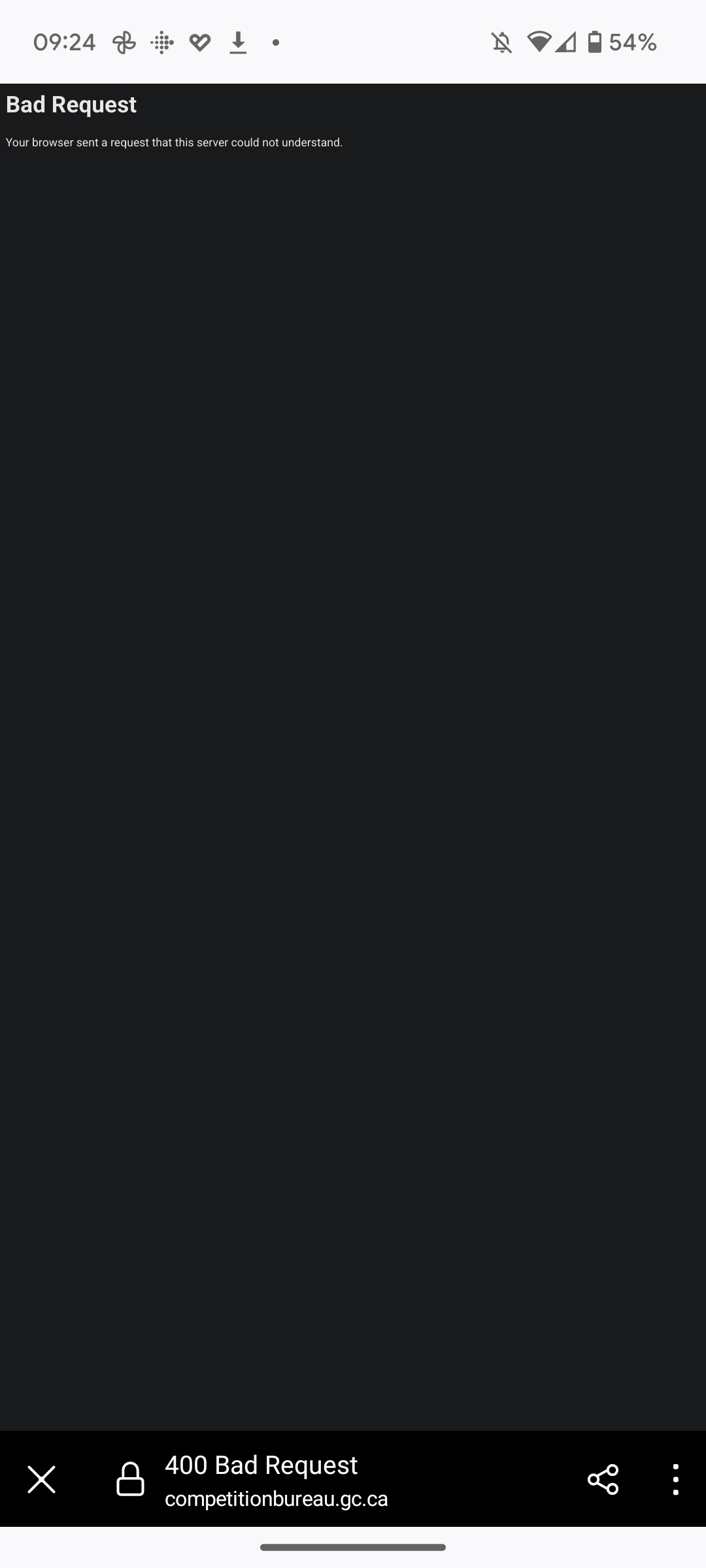- cross-posted to:
- [email protected]
- cross-posted to:
- [email protected]
If you oppose this, don’t just comment and complain, contact your antitrust authority today:
US:
https://www.ftc.gov/enforcement/report-antitrust-violation
EU:
https://competition-policy.ec.europa.eu/antitrust/contact_en
UK:
https://www.gov.uk/guidance/tell-the-cma-about-a-competition-or-market-problem
France:
https://signal.conso.gouv.fr/fr/tel-internet-media/faire-un-signalement
Germany: @[email protected] (anti-cartel bureau) of @BMWK https://www.bundeskartellamt.de/DE/Kartellverbot/Anonyme_Hinweise/anonymehinweise_node.html https://www.bundeskartellamt.de/DE/Missbrauchsaufsicht/missbrauchsaufsicht_node.html
Philippines:
https://www.phcc.gov.ph/file-a-complaint/
India:
https://www.cci.gov.in/antitrust/
https://www.cci.gov.in/filing/atd
Canada:
https://www.competitionbureau.gc.ca/eic/site/cb-bc.nsf/frm-eng/GHÉT-7TDNA5
Thanks!
Thanks I will add that to my future comments!
Added
I got a 400 bad request for the CA link
Works fine for me?
Before this thread turns into another circlejerk about how great Firefox is, I just wanna throw something out there; the whole point of the open web is that people use whatever browser they wish. I completely understand the push for Firefox right now, but everyone switching to one browser isn’t the answer. In fact that’s literally how we got to where we are.
Use whatever software you want! These are your devices and I’m not gonna shame you for how you choose to use them. What’s important is that an open web is maintained so you have that choice.
Use whatever software you want! These are your devices and I’m not gonna shame you for how you choose to use them. What’s important is that an open web is maintained so you have that choice.
Except the issue is, if people use Chromium-based browsers, then Google still has all the power and has the monopoly. If people use whatever browser they want, and it happens to be a Chromium-based browser or even Chromium itself, then we end up back in the same position as we’re in now and nothing changes.
That’s why everyone is recommending Firefox.
How likely do you think it is that even with the heavy push anything more than a small percentage of people will switch.
Apple and other companies with web browsers are probably our biggest hope. People will complain if websites just ‘stop working’ one day because of their browser choice.
That said, I’m probably fooling myself. PECO.com, a huge electric company, doesn’t work unless I’m in incognito mode. I think it fails if you are signed into another corporation’s Microsoft 365 account. But they don’t seem to care.
Shaming isn’t the answer for sure, but educating about why entertaining this monopoly further hurts people certainly is. And with gecko/Firefox being the last competing alternative to blink/WebKit, in practical terms, that’s where we are at. Unless there is a drastic change, there’s no hope for an open web to keep existing. And the arrival of a new player is practically impossible due to the complexity of modern web (even Microsoft gave up, Opera couldn’t keep going, etc.)
Google Chrome is so far ahead that I don’t think we have to worry about people pushing for Firefox…
Oh, look. It’s only been posted a thousand times this week…
I want an internet without Google.
It’s DRM for the internet. The open web is fucking dead.
In loving memory, RIP TCP/IP based internet 1973 - 2023 Rest In Peace. We missed you.Is there any way to block or spoof the collection oftheis data?
Not if they force you to get your shit signed by Google to connect to a site.
Not even with containers (in a similar way to how Firefox already handles DRM?)
If Google gets their way, either Google* authenticates you or you’re SOL.
*they’re selling it as others can too, but it will be super limited. If Firefox supported it it would only be for their build and sites would likely only validate them if you were restricted on extensions.
…fuck. I’ve been having this idea where sites could perhaps be loaded in the background with the drm in a container, with the content being displayed for the user, with this front end content being modifiable by extensions and such. So if a button needed JavaScript, the JavaScript would be ran in the DRM container and the content would be added to the user’s view.










